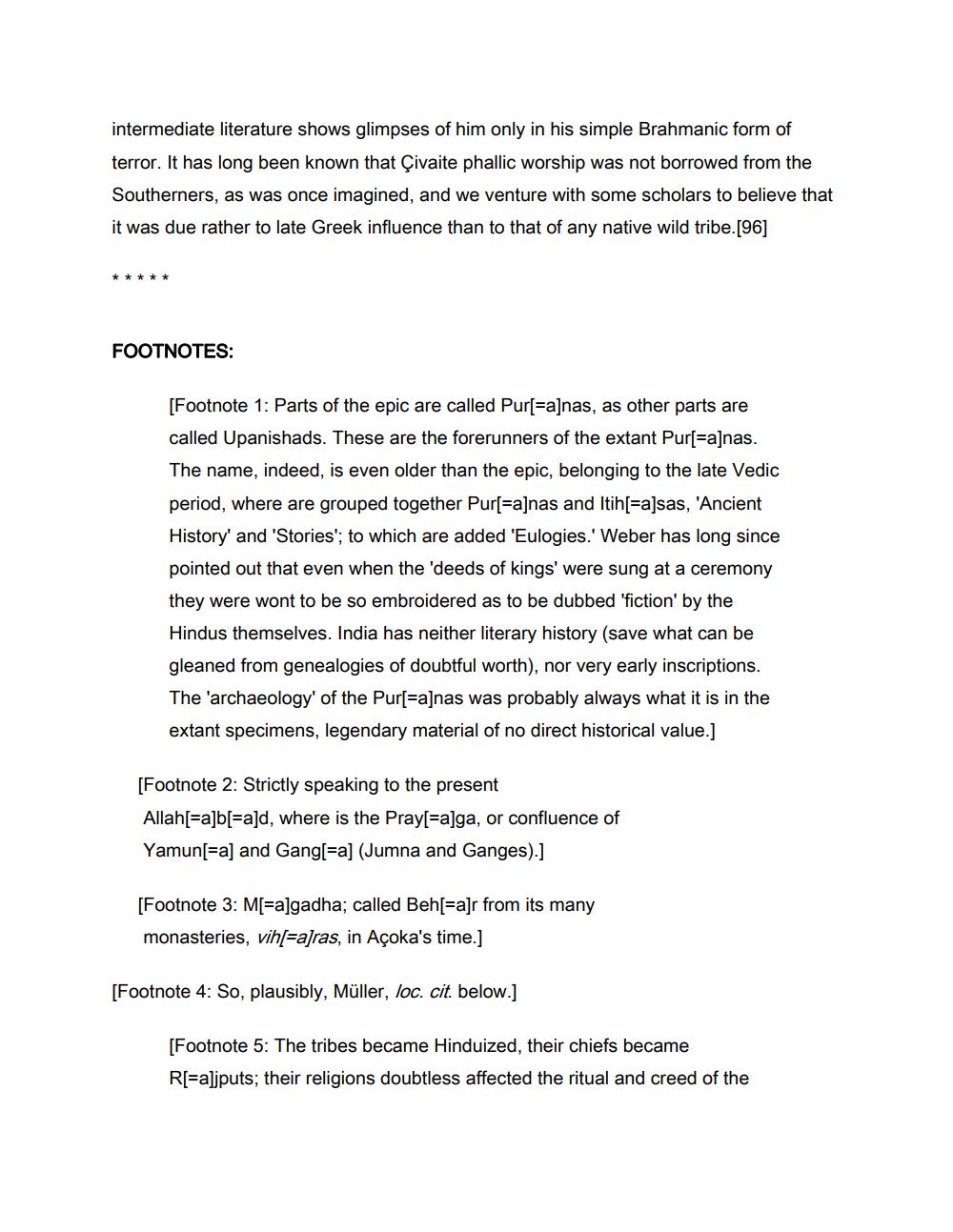________________
intermediate literature shows glimpses of him only in his simple Brahmanic form of terror. It has long been known that Çivaite phallic worship was not borrowed from the Southerners, as was once imagined, and we venture with some scholars to believe that it was due rather to late Greek influence than to that of any native wild tribe.[96]
*
*
*
*
*
FOOTNOTES:
[Footnote 1: Parts of the epic are called Pur[=a]nas, as other parts are called Upanishads. These are the forerunners of the extant Pur[=a]nas. The name, indeed, is even older than the epic, belonging to the late Vedic period, where are grouped together Pur[=a]nas and Itih[=a]sas, 'Ancient History' and 'Stories'; to which are added 'Eulogies.' Weber has long since pointed out that even when the 'deeds of kings' were sung at a ceremony they were wont to be so embroidered as to be dubbed 'fiction' by the Hindus themselves. India has neither literary history (save what can be gleaned from genealogies of doubtful worth), nor very early inscriptions. The 'archaeology of the Pur[ra]nas was probably always what it is in the extant specimens, legendary material of no direct historical value.]
[Footnote 2: Strictly speaking to the present Allah[=a]b[=a]d, where is the Pray[=a]ga, or confluence of Yamun[=a] and Gang[=a] (Jumna and Ganges).]
[Footnote 3: M[=a]gadha; called Beh[=a]r from its many monasteries, vih(=alras, in Açoka's time.]
[Footnote 4: So, plausibly, Müller, loc. cit. below.]
[Footnote 5: The tribes became Hinduized, their chiefs became R[=aljputs; their religions doubtless affected the ritual and creed of the




